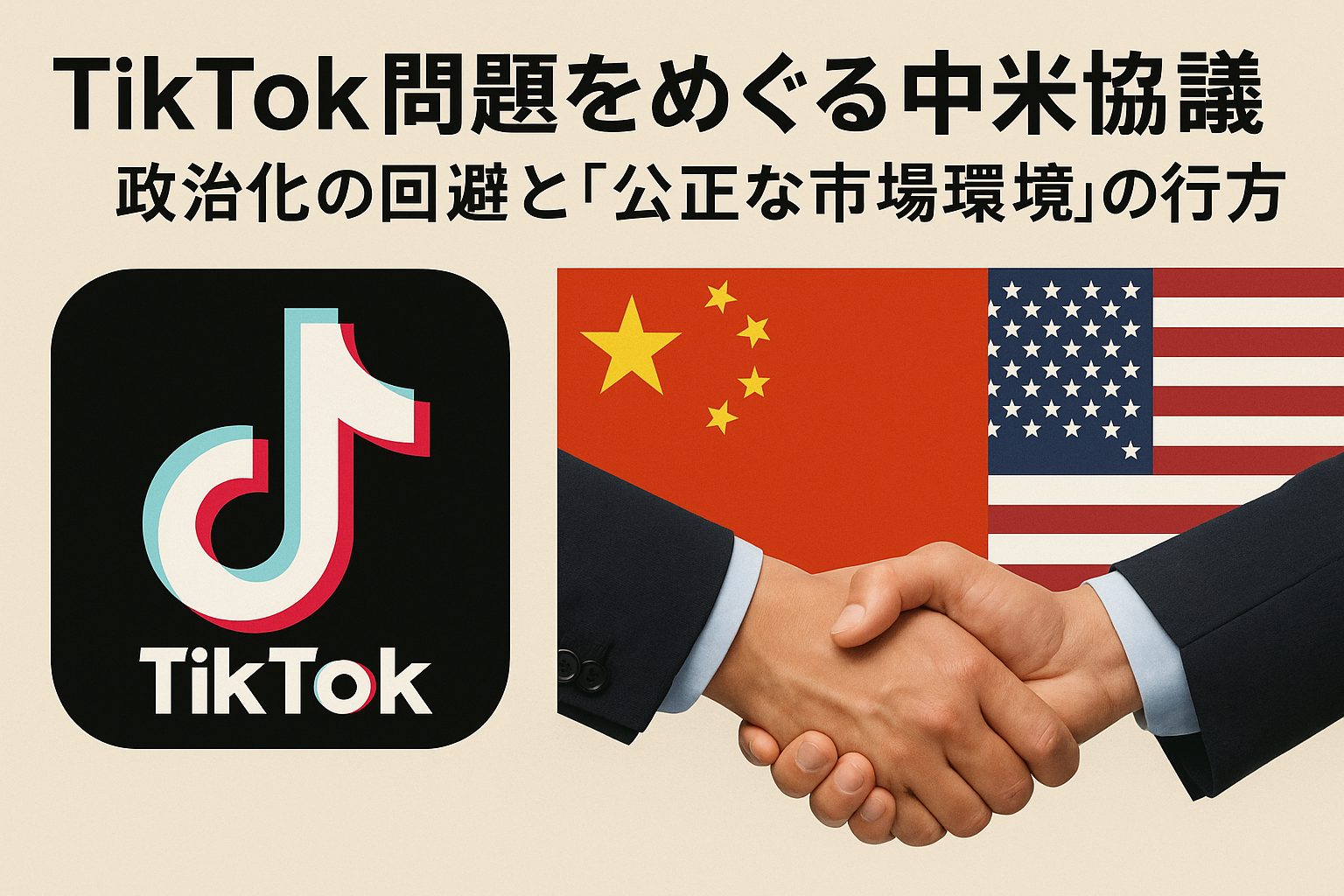On September 18, Chinese Ministry of Commerce spokesperson He Yadong reiterated China’s position on the TikTok issue. His remarks can be broadly organized into three main pillars:
Vigilance Against “Politicization, Instrumentalization, and Weaponization”
He emphasized strong opposition to the political use of issues in science, technology, and trade, including the TikTok dispute. This is not mere diplomatic rhetoric but also a critique of the broader U.S.–China technology frictions of recent years, such as those surrounding Huawei and semiconductor restrictions. The key message is a warning against turning technology into a tool of national security or political pressure.
The “Basic Framework” of the Madrid Talks
During U.S.–China trade talks held in Madrid, Spain, on September 14–15, both sides reportedly agreed on a “basic framework” covering topics such as:
- An “appropriate resolution” of the TikTok issue
- Reduction of investment barriers
- Promotion of economic and trade cooperation
Although concrete measures remain unclear, the fact that “room for compromise” was recognized following the leaders’ phone call is notable.
“Respect for Corporate Will” and “Institutional Review”
The Chinese government stressed that it would “respect the will of enterprises,” while at the same time making clear that issues concerning TikTok’s technology exports and intellectual property licensing would be reviewed in accordance with the law. In other words, Beijing is adopting a dual approach: supporting companies while controlling them within a legal framework. This appears aimed at balancing domestic accountability with international flexibility.
Reflection — Whose Standards Define a “Fair Market”?
China has urged the United States to provide an “open, fair, just, and non-discriminatory business environment.” However, since the U.S. views TikTok in the context of national security, it is unlikely that both sides can easily agree on what constitutes “fairness.”
Ultimately, the direction of these talks hinges on the clash between two values: “freedom of technology and markets” versus “security concerns.” TikTok is not just a video app — it has become a microcosm of U.S.–China relations.
Conclusion
Although a “basic framework” was agreed upon in the Madrid talks, the actual points of compromise remain uncertain. The TikTok issue serves as a symbolic example of how U.S.–China economic and technological frictions are expanding from the “corporate level” to “institutional confrontation between nations.”
How do you, the reader, interpret the phrase “fair market environment” — from which side’s perspective?

